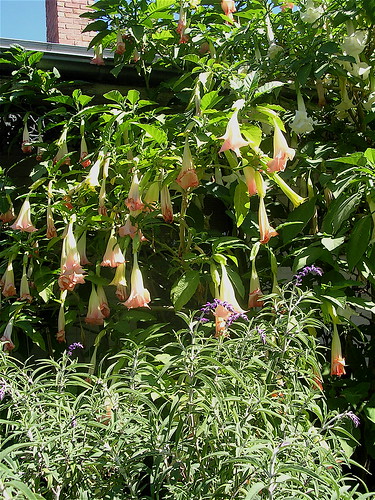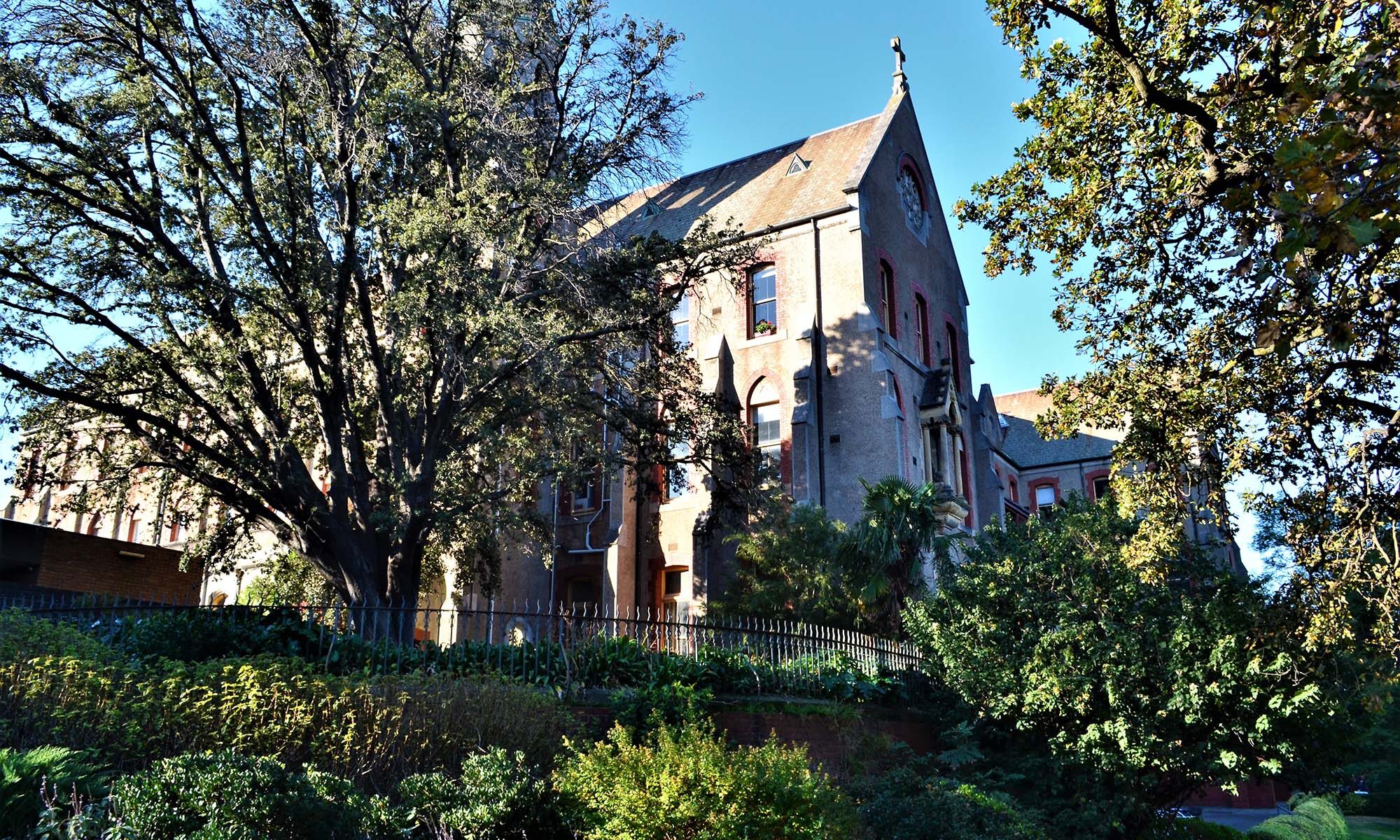
[Better photos are over at Flickr.] Don’t be tempted to brew up a tea from this powerful drug, which is impossible to dose: the amount which renders you raving is not very differnt from the fatal dose.
Acorrding to Wikipedia (also here) ingesting datura, a plant in the nightshade family, also known as zombie’s cucumber, devil’s trumpet, and jimson weed, occasions wakeful dreaming. Hallucinations caused by anticholinergics can create fully realistic three-dimensional objects that blend in perfectly with the tripper’s view of the world. Consciousness falls in and out, and for days, the affected person may converse with the non-existent.
Tropane alkaloids are some of the few substances which cause true hallucinations which cannot be distinguished from reality, unlike the visual distortions of LSD. This frequently results in dangerous and erratic behavior; in 2003, a German man cut off his penis and tongue with garden shears whilst under the influence of datura tea.
Given that it may be topically applied, the advice of the Kama Sutra should be regarded with some suspicion:
“To Enslave a Lover: anoint your penis, before lovemaking, with honey into which you have powered black pepper, long pepper and datura (the green thorn apple) it will utterly devastate your lady.“
The diagnostician’s mnemonic is “blind as a bat, mad as a hatter, red as a beet, hot as a hare, dry as a bone, the bowel and bladder lose their tone, and the heart runs alone.” Kinetic sense is gravely distorted, often giving rise to a sensation of flying, and it is hypothesised that this may have something to do with the traditional concept of witches flying, since datura was used in witchcraft along with shamanism. Indeed, it is possible that much of the world’s idea of the dark side is related to the ingestion of datura, which is said to be the most widely used psychoactive substance across time and geography other than booze. In my researches on the way to ripping open for you the seedy underbelly of this town, I came across this message in the archives of Erowid, which seems to be about drugs. It is possible that the datura kicked in during the typing out of the last sentence:
Cultivator's Report: Datura I've been working with different Daturas (stramoniums and inoxias) for about ten years. Here are a couple of things I've found. Cultivating the plant is a good way to get to know its properties. This is probably true for all botanicals. Datura reveals itself over time. It is not necessarily a pleasant plant in personality but having it around energizes the household. Observe and note. Note its companion bugs. Establish communications with its beetles. The plant needs its beetles so try not to disrupt their symbiosis too much. Be respectful of their own relationship. Note everything. Sit with the plant. Get on plant time. Listen in plant language. Photosynthesize together. Stream together. Here is one way to "intake" it that is safer than other methods. Grow it in pots. When it flowers in the evening bring the potted plant indoors and let its fragrance fill the room. Breathe it in. Sometimes this makes for a strong experience. You have to have a certain sort of mind to accomodate the experience comfortably but as one cultivates a relationship with Datura this kind of mind develops naturally. Then when the wild black dog appears, looks you in the eyes, and
But what’s that in the undergrowth? Sage, proper name salvia, possibly of the genus which is also a powerful hallucinogen. Could this be a witch’s garden (in which case I call for a posse to burn her at the stake) or is it just a plantation of the new generation of herbal drugs right under the noses of the nearby Collingwood police station?
Just down Gipps St is a block of flats with one of the most repugnant gardens of all time, including oleanders pruned by Dr Hackitoff, and that most vile of plants, the cast iron plant. Oleanders are one of the most poisonous plants: 100g will kill a horse, and the fumes from burning oleander wood are also highly toxic. According to no lesser source than the International Oleander Society, “The extremely bitter and nauseating taste of the sap (much like a rotten lemon) causes a mechanical reflex in the stomach which rejects and expels the vile substance,” but still: best be careful particularly with your little kiddies when promenading on Gipps St.
